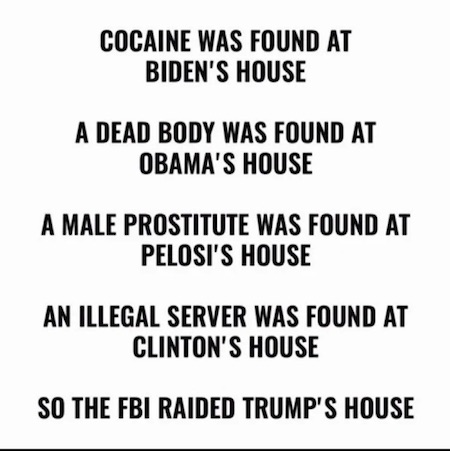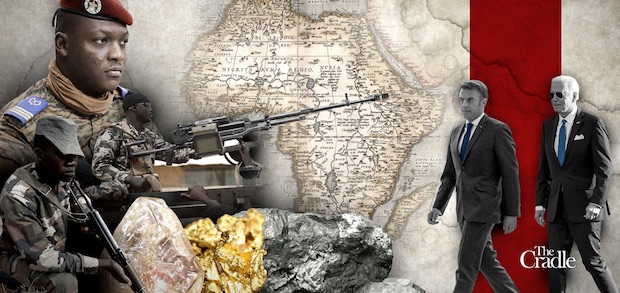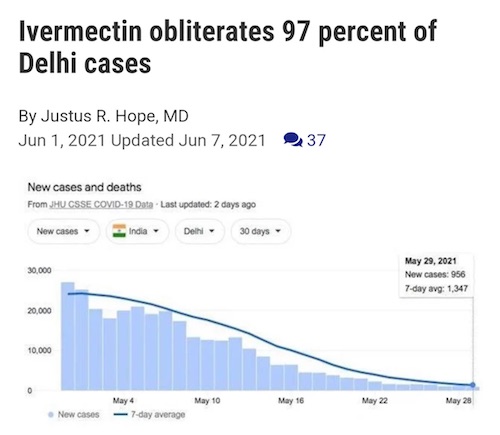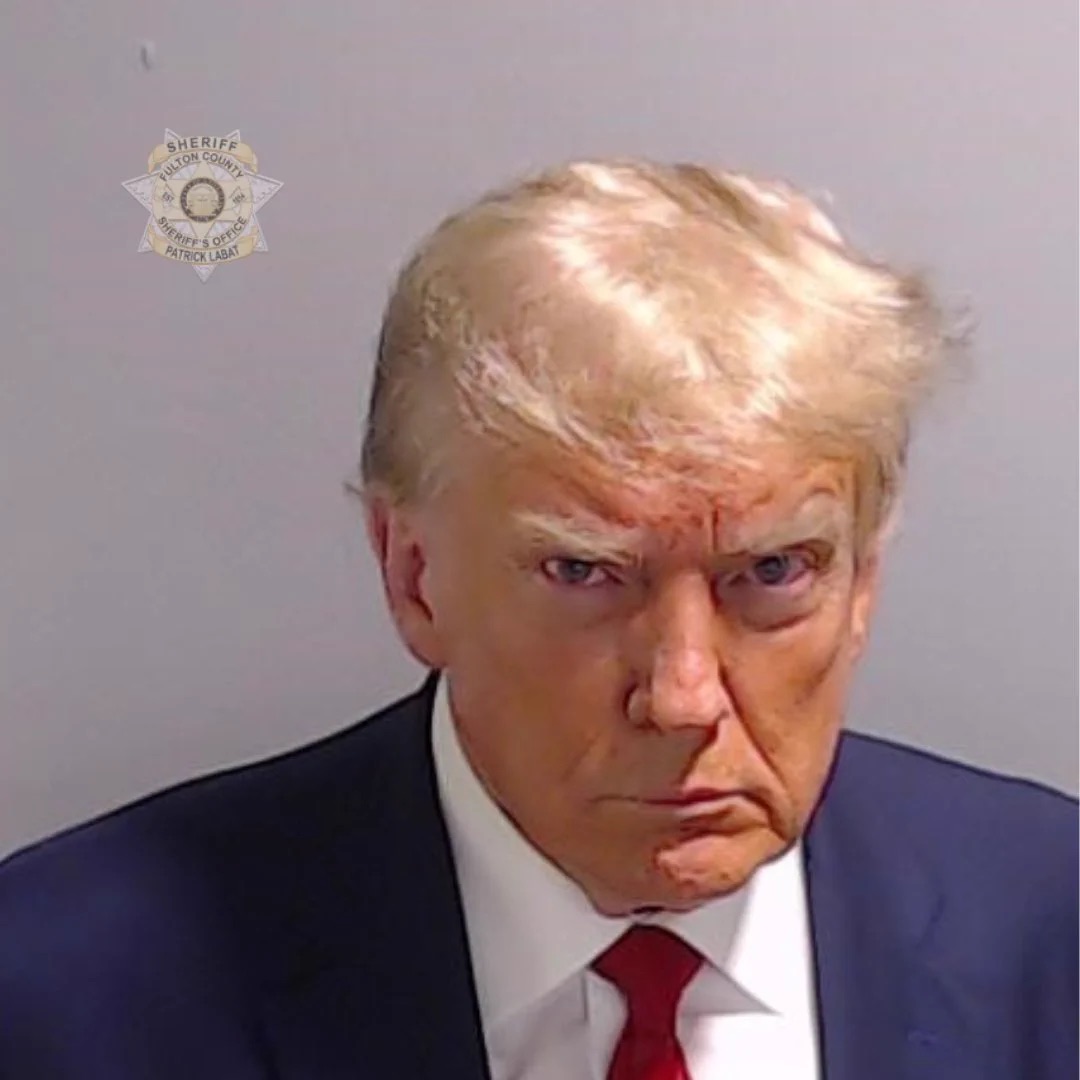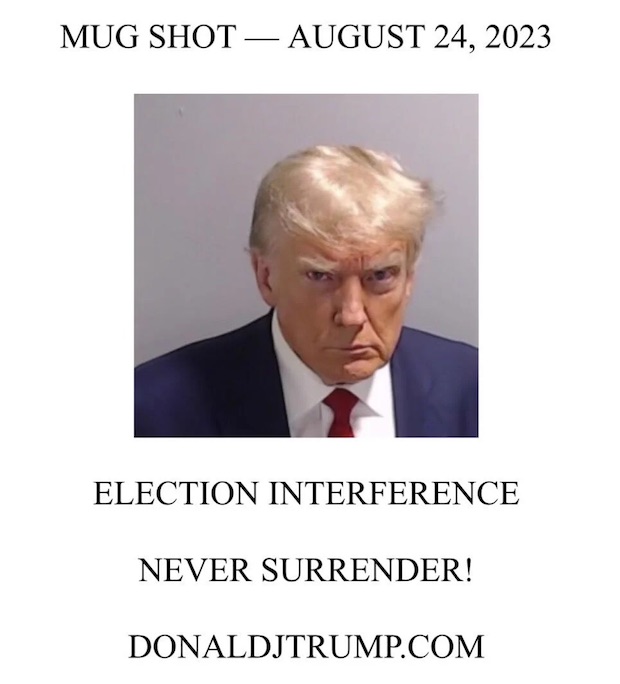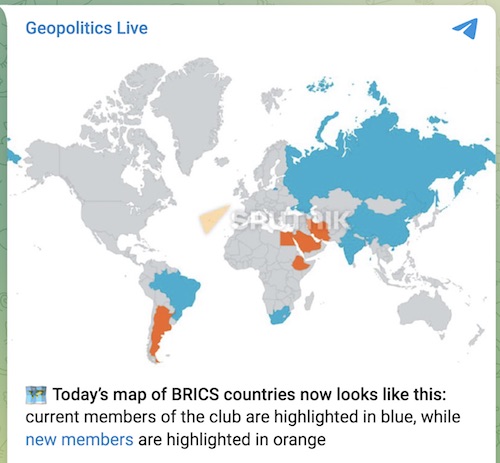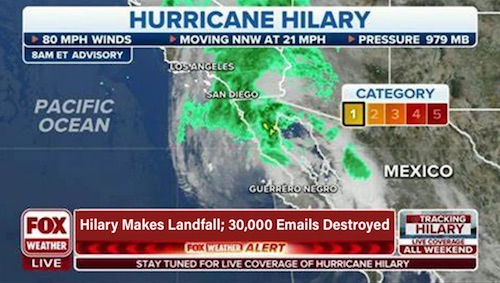
Peter Paul Rubens Daniel in the lions’ den c1615



https://twitter.com/cb_doge/status/1900681542353236349
When someone asks me, what’s your favorite letter: pic.twitter.com/5LSV0lDUvg
— DogeDesigner (@cb_doge) March 15, 2025
https://twitter.com/DefiyantlyFree/status/1900669533935071519
Candace https://twitter.com/KarluskaP/status/1900646060827062695
O’Leary
Kevin O’Leary dismisses Mark Carney as “Trudeau 2.0”, argues that a new trade deal won’t be negotiated until after the Canadian election and suggests President Trump wants to combine the U.S. and Canadian economies. pic.twitter.com/YyHkBtfZds
— Juno News (@junonewscom) March 14, 2025
Macgregor https://twitter.com/DD_Geopolitics/status/1900960935638167986


I got nothing.
• Everybody Believes Ukraine Won – Zelensky (RT)
Ukraine’s Vladimir Zelensky has claimed that Kiev has received widespread applause from its Western backers over its handling of the recent talks with the US in Saudi Arabia. The diplomatic success, he stated, puts Russia in a difficult situation that could be hard to “wiggle out of.” During a meeting in Jeddah on Tuesday, the Ukrainian delegation agreed to a US-proposed 30-day ceasefire. “Everyone congratulated Ukraine on a real victory in Jeddah, the victory of diplomacy,” Zelensky stated on Saturday, without specifying who exactly reached out to Kiev. “Everyone believes that this is a serious progress,” he claimed. At the time of the meeting, the Ukrainian military was facing a sustained Russian offensive along the entire front line, while Kiev’s troops suffered a major defeat in Russia’s Kursk Region.
A surprise attack allowed the Russian military to reclaim hundreds of square kilometers of territory within days and liberate Sudzha, the largest town in the area previously occupied by Ukrainian forces. The head of the Russian General Staff, General Valery Gerasimov, reported on Wednesday that the Ukrainian troops in the area were largely “isolated” or “encircled.” On Friday, US President Donald Trump called on Moscow to spare the lives of the “thousands” of Ukrainian soldiers trapped in the area. In response, Russian President Vladimir Putin has guaranteed merciful treatment to the surrounded fighters if they surrender. The Ukrainian General Staff swiftly branded all the reports about an encirclement a “manipulation” by Russia. Talking to journalists on Saturday, Zelensky denied that the Ukrainian troops had been surrounded in the Kursk Region.
The Ukrainian leader also demanded “unconditional” agreement from Moscow to the US-backed ceasefire proposal. “If Ukraine takes such a step, it has to be unconditional,” he stated. Putin welcomed the US ceasefire initiative by calling it “the right idea” and one that Moscow “certainly supports.” However, he maintained that certain issues, including the fate of the Ukrainian troops in Kursk Region, as well as mechanisms for monitoring the ceasefire, need to be addressed before any agreement could be reached. France and the UK have also demanded that Russia agree to an unconditional temporary truce, which prompted a sharp rebuke from former Russian President Dmitry Medvedev, who said the UK can stick such ideas back where they came from.
Read more …

“If they lay down their arms and surrender, we will guarantee them their lives and dignified treatment..”
• Time Runs Out For Ukraine Forces In Kursk Region To Surrender – Kremlin (RT)
Russian President Vladimir Putin’s offer to Ukrainian forces in Kursk Region to surrender is still valid, but time is running out, Kremlin spokesman Dmitry Peskov has said. “It is still in effect,” he stated on Saturday in response to a question from TASS news agency. “Their time is shrinking like the Shagreen skin,” he added, in reference to Honoré de Balzac’s novel ‘The Magic Skin’. On Friday, Putin guaranteed merciful treatment to Ukrainian fighters encircled in Kursk Region if they surrender. “If they lay down their arms and surrender, we will guarantee them their lives and dignified treatment in accordance with international law and Russian legal norms,” the president said. He indicated, however, that Kiev should order them to do so.
Putin’s statement was a response to US President Donald Trump’s call to spare the lives of the “thousands of Ukrainian troops” who are “completely surrounded by the Russian military.” “This would be a horrible massacre, one not seen since World War II,” he commented on Truth Social. Kiev launched a major offensive into Kursk Region in August 2024, successfully capturing the town of Sudzha along with numerous villages. Ukraine’s Vladimir Zelensky stated that the incursion across the internationally recognized border aimed to secure leverage for future peace negotiations.
However, the Russian military quickly halted the Ukrainian advance and has since been regaining territory. As of Wednesday, 86% of the land occupied by Ukraine was reclaimed, according to General Valery Gerasimov, the head of the Russian General Staff. He noted that the remaining Ukrainian units in the area are largely “encircled” and “isolated.”
Read more …

NATO and Kiev are stuck. Not Russia.
• Russia ‘Must’ Accept Ceasefire Deal – Macron (RT)
Moscow must accept the US-proposed 30-day ceasefire deal and stop making “delaying statements,” French President Emmanuel Macron has stated. Kiev agreed to a month-long truce in the Ukraine conflict following talks with the US in Saudi Arabia on Tuesday. Washington subsequently resumed intelligence sharing with Ukraine and arms shipments to the country. No EU member states were represented at the negotiations. Speaking on Thursday, Russian President Vladimir Putin confirmed that Russia is ready to discuss a ceasefire but that the terms need to be clarified to ensure it leads to a stable and permanent peace. On Friday, following talks with UK Prime Minister Keir Starmer and Ukraine’s Vladimir Zelensky, Macron demanded that Moscow accept the proposed deal.
“Russia must now accept the US-Ukrainian proposal for a 30-day ceasefire,” he wrote on X, adding that he will continue working to drum up support for Kiev going forward. The UK has also demanded an unconditional armistice from Moscow. “Now is the time for a ceasefire with no conditions. Ukraine has set their position out. It is now for Russia to accept it,” UK Foreign Secretary David Lammy said in a comment to the press on Friday. Former Russian President Dmitry Medvedev dismissed the demand. “Britain and its minister can shove their idea back up the sh*thole it came from, diplomatically speaking,” Medvedev, who serves as deputy chairman of the Russian Security Council, wrote on X.
Russia has condemned the increasingly hostile statements coming from European leaders about boosting their militarization, as the tide on the battlefield turns increasingly in favor of Moscow. Western states’ continued provision of military supplies to Ukraine makes the conflict a NATO-led proxy war against Russia, according to Moscow. Replying to British and French initiatives to deploy peacekeeping contingents to Ukraine, Russian Foreign Minister Sergey Lavrov called such ideas “outright hostile” to Russia. Any troops of the US-led military bloc in the conflict, even under the guise of peacekeepers, will amount to the “direct, official, undisguised involvement of NATO countries in the war against Russia,” the top diplomat has said.
Read more …

“..issues ranging from the fate of Ukrainian troops trapped in Kursk, to Ukraine’s ongoing forced mobilization, to monitoring for violations, and arms supplies to Kiev must be dealt with before Russia agrees to a ceasefire..”
• Russia Needs Permanent End to Ukraine Crisis, Not Minsk 3.0-Style Pause (Sp.)
Shortly after the US rolled out its 30-day Ukraine ceasefire proposal, President Trump appealed to President Putin to spare the lives of “thousands” of Ukrainian troops trapped in Kursk region. Sputnik asked a pair of veteran international affairs analysts about the risks and opportunities hidden in the US proposals. Donald Trump’s call on Russia to spare Ukrainian troops trapped in Kursk reminds veteran geopolitical analyst Brian Berletic of the Minsk peace agreements, the second iteration of which was signed in February 2015, “when Ukrainian forces were encircled and facing capture or annihilation at the hands of Donbass fighters.”
Back then, “US and European leaders eagerly urged a temporary ceasefire and the creation of conditions under which Ukrainian forces could recover, reorganize, rearm, and restart hostilities at a future date with factors leaning better in their and their Western sponsors’ favor,” the former US Marine recalled. “Now, Russian forces have delivered a significant defeat to Ukraine and its Western backers – including the United States – and once again there are urgent attempts to pause the fighting to buy time for the Ukrainians and ultimately buy time for Washington’s proxy war,” the observer said. The US’s 30-day ceasefire proposal “sidesteps” the “root causes of this conflict (US-led NATO expansion),” with the alliance’s European members being called on to more than double their defense spending, Berletic pointed out.
Accordingly, rather than a mere “freeze” of the conflict, Russia, which has “expanded its own combat power faster than Ukraine with Western backing can negate it” to achieve victories in Kursk and the incremental collapse of Ukrainian positions along the rest of the front, needs a “permanent conclusion to this conflict,” not a temporary freeze which would ensure its continuation “well into the foreseeable future,” Berletic emphasized. President Putin confirmed as much in his press conference Thursday. “We agree with the proposals to cease hostilities, but proceed from the assumption that this cessation should lead to long-term peace and eliminate the root causes of this crisis,” he said. Furthermore, issues ranging from the fate of Ukrainian troops trapped in Kursk, to Ukraine’s ongoing forced mobilization, to monitoring for violations, and arms supplies to Kiev must be dealt with before Russia agrees to a ceasefire, Putin added.
Veteran independent Argentine journalist Tadeo Castiglione argues that the US president’s appeal to Russia can be interpreted as a signal to speed up peace talks, and a message to Volodymyr Zelensky to call on his troops to surrender to avoid a massacre.“Throughout the three years of the Special Military Operation, Russia has respected international law, and ensured respect for all Ukrainian servicemen who surrendered,” something that could not be said about the other side, the veteran international affairs observer pointed out.
Kursk is outside the Special Operation Zone, Castiglione stressed, and for the Russian side, fighting on this front is considered an anti-terrorist operation, since Ukrainian forces invaded and attacked civilians beyond the NATO-Russia proxy war’s boundaries. “This is a crime on the part of the Ukrainian government. That is why Putin has emphasized that despite breaking the law on Russian territory, they will still be treated as prisoners of war,” Castiglione explained. Therefore, “if both sides really want peace, the first step must be the capitulation of Ukrainian units in Kursk,” the observer summed up.
Read more …

Her successors are far worse than she is, but she started the decline.
• Merkel Slams ‘Putinversteher’ Witch Hunts (RT)
Former German Chancellor Angela Merkel has criticized the use of the term ‘Putinversteher’ (Putin understander) to silence those who discuss Russia’s perspective, arguing that it prevents meaningful dialogue and complicates diplomacy. In an interview with Berliner Zeitung on Friday, Merkel was asked how she felt about the term, which is often used to label people who address Russian President Vladimir Putin’s concerns over NATO expansion. “Not good, because there has to be a discussion about it. You have to plan ahead for diplomatic initiatives so that they are available at the right moment,” she said.
She also rejected the idea that seeking to understand Moscow’s position amounts to supporting it. “I find the accusation of being a Putinversteher inappropriate. It is used as a conversation-stopper, a way to shut down debate.” Asked if she has ever been called one, Merkel replied: “No one has ever called me that – it’s a strange word. Understanding what Putin does and putting oneself in his position is not wrong. It is a fundamental task of diplomacy and something entirely different from supporting him.” Her remarks come amid an ongoing debate in Germany over its policy toward Russia. The term ‘Putinversteher’ is frequently used to criticize those who advocate for diplomatic engagement with Moscow, portraying them as sympathetic to the Kremlin.
Speaking on European security concerns, Merkel warned that failing to address Russia’s interests could increase the risk of future conflicts. “There is no justification for him [Putin] invading another country, but the discussion about Russia’s interests must be allowed.” Merkel was a key mediator in the Minsk agreements, a 2015 road map negotiated along with then-French President Francois Hollande, which was officially intended to reintegrate the Donbass region into Ukraine. However, after the 2022 escalation, both Merkel and Hollande admitted that the accords were never meant to bring peace, but rather to buy time for Kiev to strengthen its military with NATO’s help.
Read more …

Kellogg speaks only to Zelensky. Trump doesn’t care what he says anyway. This way Zelensky thinks he still matters.
• Trump Clarifies Ukraine Envoy’s Duties (RT)
US President Donald Trump has appointed Keith Kellogg to lead talks with Kiev. Earlier, media reports suggested that the retired lieutenant general was ousted from peace talks with Russia at Moscow’s request. “I am pleased to inform you that General Keith Kellogg has been appointed Special Envoy to Ukraine,” Trump wrote on Truth Social on Saturday. He added that Kellogg will lead direct talks with Ukraine’s Vladimir Zelensky and senior officials. “He [Kellogg] knows them well, and they have a very good working relationship together,” Trump said.
NBC News and Reuters reported on Thursday, citing sources, that Russian officials demanded that Kellogg be excluded from peace talks due to his pro-Kiev position. The retired US Army lieutenant general was absent from last month’s Russia-US talks in Saudi Arabia and this week’s US-Ukraine talks in Jeddah, where the delegations proposed a 30-day ceasefire. On Thursday, US special envoy Steve Witkoff traveled to Moscow to formally present the details of the initiative to Russian officials. Witkoff’s meeting with Russian President Vladimir Putin was hailed as “very good and productive” by Trump.
Putin expressed support for a potential 30-day ceasefire in the Ukraine conflict, but has raised concerns regarding how it can be implemented. He also offered the Ukrainian forces encircled in Russia’s Kursk Region time to surrender, guaranteeing them their lives and dignified treatment. Regarding ties between Moscow and Washington, the Russian president acknowledged the Trump administration’s efforts to rebuild them, but said the process remains challenging. “We know the new administration, headed by President Trump, is doing everything to restore at least part of what was practically reduced to zero, destroyed by the previous American administration,” Putin said.
Read more …

“..Medvedev dismissed the ultimatum, telling Britain and Lammy personally to “shove their idea back up the sh*thole it came from, diplomatically speaking.”
• Putin Aide Compares EU Leaders To ‘Affectionate Puppies’ (RT)
President Vladimir Putin’s foreign policy aide, Yury Ushakov, has echoed the Russian leader’s comparison of European leaders to puppies, commenting on how quickly they shifted to supporting the US push for a ceasefire in the Ukraine conflict. Last month, Putin predicted that European politicians, who “happily carried out any order from the president in Washington” under President Donald Trump’s predecessor, Joe Biden, would soon fall in line with changing US policy. Given Trump’s “character and persistence,” all of them would soon “stand at the master’s feet and gently wag their tails,” the Russian president said. In an interview on Friday with Russia 1 TV journalist Pavel Zarubin, Ushakov was asked to comment on European leaders’ recent shift to supporting the US-proposed 30-day ceasefire after years of steady military assistance to Kiev.
Everything is turning out as Putin “vividly” portrayed, the presidential aide said. “He described it as if they would be like affectionate dogs at the feet of their master. This is approximately what is happening now,” Ushakov stated. Following a virtual meeting of European leaders on Friday, France and the UK both demanded that Russia accept the 30-day ceasefire agreed upon by Ukraine and the US during bilateral talks in Saudi Arabia earlier in the week. “Russia must now accept” the truce deal, French President Emmanuel Macron wrote on X. UK Foreign Secretary David Lammy told the press that Moscow must accept the ceasefire without conditions. “Ukraine has set their position out. It is now for Russia to accept it,” he said. Former Russian President Dmitry Medvedev dismissed the ultimatum, telling Britain and Lammy personally to “shove their idea back up the sh*thole it came from, diplomatically speaking.”
The US and its allies in Europe severed diplomatic ties with Russia soon after the escalation of the Ukraine conflict in 2022, pledging to support Kiev with financial and military aid “as long as it takes.” Moscow has long characterized the conflict as a Western proxy war against Russia. Trump has repeatedly signaled his intention to diplomatically wind down the conflict during his reelection campaign. Relations between Washington and Moscow began to thaw following a phone call between Putin and Trump, which was followed by high-level talks in Riyadh last month. European leaders who severed ties with Moscow can reestablish diplomatic contact whenever they choose, Putin said last month, though he noted they are “deeply entangled with the Kiev regime” and that it would be “very difficult or almost impossible for them to backtrack without losing face.”
Read more …

“For Orban, the War Against Soros Is Personal.”
Where do you think this weekend’s big anti-Orban protests come from?
• Viktor Orban vs. the Modern-Day Habsburgs in Brussels (Sp.)
Hungary’s prime minister has released a 12-point ultimatum to the European Union, demanding peace, sovereign equality, the protection of Europe’s Christian heritage, the expulsion of “Soros agents” in the European Commission, and an EU “without Ukraine.” Sputnik asked two renowned experts of Hungarian politics what’s really at stake. Orban’s appeal, coinciding with the anniversary of the Hungarian Revolution of 1848, signals recognition that Brussels bureaucrats have become the modern-day oppressors of Hungary, imposing an “ongoing tyranny” amid Budapest’s efforts to “pursue its own national, historical, cultural policies,” renowned international affairs commentator Dr. George Szamuely explained. It’s very much about “national autonomy, national self-determination [and] national identity” versus the universalist, globalist vision of the likes of Ursula von der Leyen, according to the observer.
The timing of Orban’s statement has to do with the rise of Trump, Szamuely says, with the Hungarian leader already serving “kind of ‘Trump before Trump’” anyway, opposed to mass illegal immigration, promoting a “Hungary First” vision, and consistently advocating for “immediate peace in Ukraine.” “Russia raised objections about Ukraine in NATO, but never in the EU. So it’s very interesting that Orban has done this,” Szamuely said, commenting on the Ukraine-related aspect of Orban’s 12-point demands. “He sees Ukraine in the EU as being a serious economic threat to countries such as Hungary and others in Central Europe, particularly with its cheap agricultural products that will be used to wipe out agriculture,” Szamuely explained.
“He probably sees that this is part of the plan on the part of the EU leaders Ursula von der Leyen, Kaja Kallas and the rest to destroy the economies of Central European states such as Hungary and Slovakia,” the observer added. Veteran Hungarian journalist Gabor Stier agrees. “Orban is saying we have suffered from the war, and now will suffer from Ukraine’s membership in the EU, because the EU will collapse if Ukraine becomes a member…I agree with this 100%,” Stier, a senior foreign policy analyst at Hungary’s conservative daily newspaper Magyar Nemzet, explained. In this regard, Orban and Hungarians recognize a reality that EU elites and most ordinary Europeans don’t, according to the observer.
The Hungarian leader has “been very much the victim of George Soros’ infrastructure in Europe, which has been targeting him for 15 years, really, ever since he first came to power in 2010,” Szamuely said, commenting on the anti-Soros portion of Orban’s 12-point appeal. Up for reelection next year, Orban “sees Soros money behind the candidacy of Peter Magyar, who is going to be the leader of the opposition, the leader of the Tisza Party,” Dr. Szamuely explained. Besides this, Soros’ arsenal includes his NGOs, think tanks, newspapers, legal and lobbying groups, who target “nationalist populists” across the EU. “Whether it’s Fico and Slovakia, we’ve also seen what happened to Georgescu in Romania, and without question, if they can get Orban, that’ll be a huge victory for the color revolution,” Szamuely stressed.
Stier notes that Orban’s mission today is about “squeezing out everyone tied to Western networks, the so-called Soros structures.” “This is a part of the war that Trump is waging against the globalists. And [in Hungary] one of Trump’s European supporters is making great efforts to do the same,” Stier explained. Today’s global political landscape in the middle of an “ideological war between globalists and the sovereigntists, between ‘Sorosists’ and ‘Trumpists’,” Stier says. “It’s very important that Orban now feels Trump’s support and strength behind him, and this expands his room for maneuver. At the same time, in domestic politics, he must somehow mobilize his supporters, because while there is still a year before the elections, he will need to work very hard to win,” the observer summed up.
Read more …

There is no alternative.
“Ukraine is estimated to be already using nearly 50,000 proprietary Starlink terminals..”
• With Starlink, Musk Has Similar Effect On Europe As He Does In US (JTN)
Since returning to the White House nearly two months ago, Donald Trump has tested the willingness of the U.S.’s European allies to deal with uncertainty regarding trade and security. On a smaller, but important, Trump ally and billionaire entrepreneur Elon Musk has charted a similar path with his groundbreaking Starlink telecommunications systems. Using a vast network of low-orbit satellites, Starlink – a subsidiary of Musk’s SpaceX – can provide users with high-speed Internet access essentially anywhere in the world, even when users are on the move. The technology plays a key role in the high-tech war in Ukraine, and it’s also of use in remote parts of the world and can even be used for limited periods during power outages. There are downsides, of course. Though Starlink’s services have come down in price, they are still expensive compared to faster, traditional Internet alternatives. And they require a clear line of sight to the sky order to work correctly, making them ineffective in some urban contexts, mountainous areas, or dense forests.
Scientists also worry about filling up low orbits with “space junk” that could crash into spacecraft or other satellites, obscure astronomers’ views of the heavens, and increase the amount of space debris that falls to earth. But the biggest obstacle to the company’s spread may be Musk himself. Since taking a role in the Trump administration and weighing in on an array of hot button global issues, Musk has become a controversial figure. That is having an impact across Musk’s business empire, leading to plummeting sales of Tesla cars and a growing exodus of users from his X social media platform. Late last year, Italy began talks about signing a $1.6 billion deal to provide Starlink services to its diplomatic corps and military personnel stationed abroad. But the deal has run into trouble amid allegations that it is the fruit of the cozy relationship between Italian Prime Minister Giorgia Meloni and both Trump and Musk.
Musk also threatened to turn off access to Starlink in Ukraine (“Their entire front line would collapse if I turned it off,” Musk tweeted a week ago). He has since backtracked off the threat, but it has helped turn public opinion against him in Italy and elsewhere. In addition, Musk’s threat also cause s riff with Poland, when the country’s prime minister, Poland’s foreign minister over the use of the tech billionaire’s Starlink satellite internet system in Ukraine. Musk said on X that Ukraine’s “entire front line” would collapse if he turned the system off, Radoslaw Sikorski,responded to Musk by saying his country pay for Starlink’s use in Ukraine and a threat to shut it down would result in a search for another network. “Starlinks for Ukraine are paid for by the Polish Digitization Ministry at the cost of about $50 million per year,” he said. “The ethics of threatening the victim of aggression apart, if SpaceX proves to be an unreliable provider we will be forced to look for other suppliers.”
Secretary of State Marco Rubio dismissed Sikorski’s claims and told him to be grateful, while Musk called him a “little man.” Musk has also drawn fire from leaders in the U.K., Germany, and France. Additionally, the Trump administration’s hardline criticisms of Europe are having an impact, according to Hashem Alkhaldi, founder of ReshapeRisks, a London-based geopolitical risk consultancy. “European political considerations are an increasingly important factor for Starlink,” Alkhaldi told Just the News. “U.S. companies, including Starlink, are now likely to be viewed as strategic threats rather than market partners.” Alkhaldi said the change has ramped up efforts in Europe to improve its “strategic autonomy” from the U.S. “Recent developments have only heightened this sensitivity,” he said, likely referring, at least in part, to Trump’s tariffs on the EU and threats to stop U.S. funding to Ukraine in its effort to fend off Russia’s invasion, leaving the task up to European countries.
The problem is, there isn’t a viable global alternative – at least not for the time being. European leaders said earlier this month that they’d step in to help Ukraine replace Starlink’s networks if access to Starlink was blocked. But it’s not clear how they could do that. A spokesman for the European Commission said the entity was looking into helping Ukraine by using Govsatcom – a pooled constellation of satellites from European Union member states – combined with the Iris2 sovereign satellite network that is at least five years from being fully operational. But that would only answer a small fraction of Kyiv’s operational needs. Shares in French satellite operator Eutelsat – for now, Starlink’s most direct competitor – shot up more than 500% in a week as tensions with Starlink escalated. But by most counts, Eutelsat operates just one satellite for around every 12 Starlink has deployed. In a similar circumstance in the U.S., Musk’s top two Teslas cars – Model Y and Model 3 – account for roughly 43% of the country’s electric vehicle sales.
“The Eutelsat network would be pushed to its limits to meaningfully fill the gap Starlink could leave in Ukraine,” Alkhaldi said. “Starlink has technological advantages over European companies, which haven’t had big incentives to grow since there aren’t that many service gaps in Europe. Add to that the fact that Ukraine has relied excessively on Starlink.” Even if it could work, a switch to a new technology would be slow and expensive. Ukraine is estimated to be already using nearly 50,000 proprietary Starlink terminals. Starlink terminals have also proved unusually resistant to Russian electronic interference. There’s no way to know whether the same would be true for Eutelsat and others. What may be more likely than a viable European alternative in the Ukraine war would be one from the other side of the world: China. China’s global communications satellite presence is still modest, but it is ramping up fast. And even as things stand, Ukraine leader Volodymyr Zelenskyy warns China is already wading into the fray on the Russian side.
Read more …

“..for the glory of humanity.”
• Moscow Invites Musk To Collaborate On Mars Exploration (RT)
Russian sovereign wealth fund head Kirill Dmitriev has pitched a US-Russia partnership for Mars exploration to Elon Musk. In a post on X on Saturday, Dmitriev, who has also taken on the role of chief economic envoy in the US-Russia talks, noted the importance of space collaboration between the two countries “for the glory of humanity.” Dmitriev’s remarks came in response to Musk’s announcement of a planned 2026 Mars mission. The SpaceX founder stated that the company’s Starship spacecraft is set to depart for Mars next year and will be carrying a Tesla humanoid bot called Optimus. Musk also suggested that human landings on Mars could begin as early as 2029.
“Shall 2029 be the year of a joint US-Russia mission to Mars, @elonmusk? Our minds & technology should serve the glory of humanity, not its destruction,” Dmitriev wrote. He also noted that 2025 marks the 50th anniversary of the Apollo-Soyuz Test Project, the first crewed international space mission carried out jointly by then-spaceflight rivals, the US and the Soviet Union, in July 1975. Musk has not yet publicly responded to Dmitriev’s proposal, but the idea has garnered a slew of positive reactions from X users.
Read more …

“The message is that America wants Greenland, but that Greenland will ultimately need the U.S…”
• Trump’s Overtures Toward Greenland Are Paying Off (DS)
Acquiring Greenland remains a priority for the Trump administration, and there are signs that a deal may be inching closer to happening.You may have missed it, but President Donald Trump referred to Greenland in his joint address to Congress in early March. Trump said to the people of Greenland, “We strongly support your right to determine your own future, and if you choose, we welcome you into the United States of America.” That short line, “and if you choose,” is significant because it undermines the silly conjecture that Trump is going to take the United States to war with Greenland and NATO or some such nonsense. Sumantra Maitra at The American Conservative wrote that the U.S. purchasing and integrating lands peacefully is very much in line with the country’s traditions.
“The idea that the U.S. would just simply annex Greenland, even by force if needed, is unappealing to a lot of Americans and worse for Europeans,” Maitra wrote. “Peaceful integration and mutually beneficial trade with foreign lands, on the other hand, is as American as, well, apfelstrudel” (the German phrase for apple pie). Gentle, but forceful coaxing is the way to go here to entice the people of Greenland without provoking anti-American backlash. Trump affirmed his commitment to this path on Thursday, too, saying how important he thinks Greenland is for security around the Arctic, through which Russian and Chinese ships frequently pass. The message is that America wants Greenland, but that Greenland will ultimately need the U.S. It will be a mutually beneficial relationship for all. Greenland’s recent elections were a mixed bag but they showed that the potential for a long-term deal is increasing.
The victorious Demokraatit party is considered center right. It’s generally pro-Europe and not currently in favor of U.S. acquisition but leans toward long-term independence. Notably, the second-highest vote-getting Naleraq party—that only trailed Demokraatit by a few points—is the one most strongly amenable to independence (from Denmark) and partnership with the U.S. They will almost certainly be part of the ruling coalition of the country, since the two parties’ combined vote percentage was over 50%. And most importantly of all, the left-wing parties hostile to Trump and the U.S. were soundly defeated. [..] Even NBC News admitted in an analysis of the election that while the pro-U.S. party didn’t win outright, the results are likely good for the White House. It should be noted that Greenland’s voters are typically very much to the Left of Americans. The rightward shift after Trump’s overtures is significant.
Greenland is almost certainly willing to “play ball,” so to speak. And for a good reason. The United States offers huge investment possibilities far beyond the capacity of any European country or collection of countries, and certainly of Greenland alone. Right now, both Denmark and Greenland are trapped in a suboptimal economic situation. Denmark can’t quite invest in Greenland to the degree necessary to make the partnership really pay off and it remains an underdeveloped financial burden as a result. Greenland is rich in natural resources, but the island has a tiny number of people and only a few marginal industries. A great power like the United States could step in and make things happen like never before. The key phrase here is “great power.” Greenland is of more importance now than it has been in decades because there’s been an unmistakable return to international great power competition.
A look at any map of the globe from the top should explain why Greenland is important. It’s straddled by Russia on one side, and China is highly interested in the region, especially its resources. Starting the long-term process of acquiring Greenland signals that the U.S. is not going to let another great power encroach on the territory. It will help build upon the U.S. presence and influence over the Arctic. And it will provide significant investment and job opportunities to Americans and Greenland residents. Trump said to the people of Greenland in his address, “We will keep you safe. We will make you rich. And together we will take Greenland to heights like you have never thought possible before.” The Trump administration’s focus on Greenland demonstrates that the U.S. is not content to be a fading power or an economic zone in a global, woke empire. Instead, it will act as a great nation, willing to defend its interests at home and abroad and unwilling to allow other powers to force their way into the Western Hemisphere.
Read more …

“Ending Radical and Wasteful DEI Programs and Preferencing;” “Defending Women From Gender Ideology Extremism and Restoring Biological Truth to the Federal Government;” and “Ending Illegal Discrimination and Restoring Merit-Based Opportunity.”
• The 4th Circuit Reverses Nationwide Injunction on Ending DEI Funding (Turley)
On Friday, the United States Court of Appeals for the Fourth Circuit reversed the much-covered nationwide injunction imposed by U.S. District Judge Adam Abelson in Baltimore regarding ending federal support for diversity, equity, and inclusion (DEI) programs. The three-judge panel ruled that Judge Abelson had gone “too far” in seeking to enjoin the federal government across the country. The Fourth Circuit recognized that the executive orders “could raise concerns” about First Amendment rights that might have to be addressed down the road. However, it found Abelson’s “sweeping block went too far.” It also pointed out that the orders were not nearly as unlimited and sweeping as suggested by the district court or the media.
Trump’s orders directed federal agencies to terminate all “equity-related” grants or contracts, and further required federal contractors to certify that they implement DEI programs which the Administration believes are discriminatory and violated federal civil rights laws. Those orders are also being challenged in other cases and include “Ending Radical and Wasteful DEI Programs and Preferencing;” “Defending Women From Gender Ideology Extremism and Restoring Biological Truth to the Federal Government;” and “Ending Illegal Discrimination and Restoring Merit-Based Opportunity.” The district court found the orders in the Maryland case to be unconstitutionally “vague” and chilled free speech. That was a victory for the litigants, including the City of Baltimore, the National Association of Diversity Officers in Higher Education, the American Association of University Professors and the Restaurant Opportunities Centers United.
In their order, the panel explained that the orders were misrepresented in their scope. Judge Pamela Harris, a Biden appointee, wrote that: “The challenged Executive Orders, on their face, are of distinctly limited scope. The Executive Orders do not purport to establish the illegality of all efforts to advance diversity, equity or inclusion, and they should not be so understood.” Judge Harris also noted that the orders “do not authorize the termination of grants based on a grantee’s speech or activities outside the scope of the funded activities.” Likewise, she noted that the certifications only require pledges not to violate existing federal anti-discrimination laws. Nevertheless, Judge Harris noted that the officials could enforce these orders in unconstitutional ways: “Agency enforcement actions that go beyond the Orders’ narrow scope may well raise serious First Amendment and Due Process concerns,” the judge added.
Chief Judge Albert Diaz, an Obama appointee, agreed with Harris but wanted to emphasize that the enforcement of these orders should not stray from their narrow framing: “I too reserve judgment on how the administration enforces these executive orders.”Judge Diaz, however, went beyond that scope and engaged in a degree of editorialization on the value of DEI programs. “Despite the vitriol now being heaped on DEI, people of good faith who work to promote diversity, equity, and inclusion deserve praise, not opprobrium,” the judge wrote. “When this country embraces true diversity, it acknowledges and respects the social identity of its people. When it fosters true equity, it opens opportunities and ensures a level playing field for all. And when its policies are truly inclusive, it creates an environment and culture where everyone is respected and valued. What could be more American than that?… A country does itself no favors by scrubbing the shameful moments of its past.”
The only Trump appointee pushed back on the rhetoric of her colleagues in their defense of DEI policies. Judge Allison Rushing correctly, in my view, objected to the political dimension of such dicta. “Any individual judge’s view on whether certain Executive action is good policy is not only irrelevant to fulfilling our duty to adjudicate cases and controversies according to the law, it is an impermissible consideration. A judge’s opinion that DEI programs ‘deserve praise, not opprobrium’ should play absolutely no part in deciding this case.” I also found the tenor of the opinion of Chief Judge Diaz to be concerning. The review of an injunction is not an invitation or license to express one’s personal view of the moral or social value of government programs. I share the concern of all three judges with how these orders will be enforced to protect free speech rights. However, we have a court system to address any such abuses if they were to arise. If there are “as applied” violations, they can be raised in the context of a specific case with the courts. In the meantime, the Supreme Court has signaled that it is losing patience with nationwide injunctions from district court judges.
Read more …

“..unelected bureaucrats were running the country while Biden struggled to remember what day it was..”
• Trump Has Something To Say About the Biden Autopen Scandal (Margolis)
The Biden administration has been caught in what could be one of the most jaw-dropping scandals in presidential history. As PJ Media previously reported, virtually every document during Biden’s presidency was signed by autopen. While the presidential autopen isn’t new—Barack Obama first used it to sign legislation in 2013—the scale of its use under Biden and the circumstances surrounding it are raising serious red flags. Legitimate questions have been raised as to whether use of the autopen was always authorized by Joe Biden, or even if he was aware it was being used to sign documents. The situation has become so alarming that President Trump addressed it directly during his Friday speech at the Department of Justice.
“Crooked Joe Biden got us into a real mess with Russia and everything else he did, frankly,” Trump begain. “But he didn’t know about it and he, generally speaking, signed it with autopen. So how would he know? That autopen is a big deal? I don’t know.” Trump continued, “You know, they’re having, who’s, who’s doing this? When my people come up, Will and all of the people, Steve, they come up and, ‘Sir, this is an executive order.’ They explain it to me and you know, 90% of the time I sign it, 99% of the time I say, ‘Do it,’ but they come up and I sign it. But you don’t use autopen. Number one, it’s disrespectful to the office. Number two, maybe it’s not even valid because you know who’s getting him to sign? He had no idea what the hell he was doing. If he did, all of these bad things wouldn’t be happening right now.”
Even more alarming are the revelations from former Biden White House insiders. One source told the New York Post that they suspect a key aide to Joe Biden may have unilaterally decided what documents to auto-sign. The plot thickens, with anonymous White House sources painting a picture of potential abuse of power. The source explained that “everyone” was worried that a particular aide was exceeding his or her authority, “But no one would actually say it.” “I think [the aide] was using the autopen as standard and past protocol,” the source said. “There is no clarity on who actually approved what — POTUS or [the aide].” Speaker Mike Johnson previously highlighted Biden’s inability to recall signing an LNG (liquified natural gas) exports executive order. Let that sink in—the “president” couldn’t remember signing a major executive order affecting our energy security. But was he even involved in the decision at all?
The left-wing media will try to sweep this under the rug, but the evidence is mounting. We’re potentially looking at a situation where unelected bureaucrats were running the country while Biden struggled to remember what day it was. Former White House staffers can dispute these allegations all they want, but the American people aren’t stupid—we could see what’s happening. This isn’t just about an autopen anymore—it’s about who was really calling the shots in the Biden White House. And the answer to that question should terrify every American who believes in democratic governance. With President Trump speaking of the scandal, you can bet this won’t go away anytime soon. Will we find out that Joe Biden hadn’t authorized and maybe wasn’t even aware that official documents were being signed on his behalf? What happens if we do?
https://twitter.com/bennyjohnson/status/1900579758162788741
Read more …

“..Under the order, the agencies must reduce their operations and staff to the bare minimum required by law..”
• Trump Orders Cutbacks At State-Run Media (RT)
US President Donald Trump has signed an executive order aimed at significantly reducing operations at the agency that funds state-sponsored news outlets such as Voice of America and Radio Liberty. The move is part of Trump’s drive to root out wasteful spending, bureaucracy, and corruption in the US government, which has already resulted in the cancelation of programs and significant job cuts within the federal workforce. Signed on Friday, the executive order targets seven federal agencies, including one that provides funding for museums and one that deals with homelessness. It also targets the US Agency for Global Media (USAGM), which oversees the state-owned Voice of America (VOA), along with Radio Free Europe/Radio Liberty (RFE/RL) and Radio Free Asia, which are separate not-for-profit entities that are also fully funded from the US budget. All three claim to provide unbiased news to audiences in around 100 countries, but are widely seen as propaganda outlets.
Under the order, the agencies must reduce their operations and staff to the bare minimum required by law. Agency heads have seven days to submit compliance plans outlining which functions are legally mandated. Trump has frequently criticized US-funded media outlets, including VOA, accusing them of being biased. In a speech at the Department of Justice on Friday, he blasted the US media as “corrupt and illegal,” calling them “political arms of the Democrat party.” He singled out CNN and MSNBC, claiming they “literally write 97.6% bad about me,” and vowed to continue eliminating “rogue actors and corrupt forces” within the federal government.
Elon Musk, who leads Trump’s Department of Government Efficiency (DOGE), has pushed for a complete shutdown of RFE/RL and VOA. In a post on X last month, the tech billionaire labeled them “radical left crazy people talking to themselves while torching $1B/year of US taxpayer money.” Since then, the Trump administration has reportedly taken nearly full control of the USAGM, imposed a 30-day freeze on its funding, and initiated layoffs, particularly among probationary employees at VOA. Kari Lake, Trump’s newly appointed head of VOA, has supported the cost-cutting measures, but suggested that the agency could still be salvaged. On Thursday, she announced plans to end costly contracts with major wire services such as AP, AFP, and Reuters. In a social media post, Lake said she was “finding a lot of nonsense that the American taxpayer should not be paying for.”
Read more …

“Trump can authorize Musk and DOGE to do what he simply cannot because of time and resource constraints on him. To argue otherwise is to suggest either that the president can be barred from ensuring that the laws be faithfully executed or that the chief executive must be omniscient..”
• The Swamp Can Scream But DOGE Is on a Lawful Path to Success (DS)
Despite a smattering of preliminary injunctions and administrative stay orders from rogue federal judges, President Donald Trump’s Department of Government Efficiency is well on its way to accomplishing its worthy goals. And despite what some out-of-control judges are saying, it is acting well within the boundaries of the law. Already, DOGE has exposed wasteful, potentially fraudulent, and truly bizarre spending of taxpayer funds to the tune of $105 billion. For comparison, that’s equivalent to about half the gross domestic product of Kansas and more than twice that of Vermont. Unsurprisingly, DOGE’s work has elicited vehement howls from the parasites of government largess, particularly so-called nongovernmental organizations that have received billions of dollars. They have flooded the courts—engaging in very selective venue shopping to find “their” judges—with multiple lawsuits all alleging that Elon Musk and his team are acting outside of the law.
“NGO” is really a misnomer when you consider that these organizations who call themselves “nongovernmental” are sucking so much money out of the federal government—like Planned Parenthood, which received over half a billion taxpayer dollars in just one year. No way are they “nongovernmental.” But contrary to what it might seem if you read the headlines of The New York Times or watch hysterical outbursts at MSNBC, so far the Trump administration has been relatively successful in defeating those trying to prevent DOGE from finding and stopping the waste of federal funds. To date, about 23 lawsuits have been filed to halt DOGE’s work. Only three have obtained orders adverse to DOGE—and none has successfully stopped DOGE from doing its much-needed work.
For instance, 19 states led by New York asked U.S. District Court Judge Jeannette Vargas to stop DOGE from changing how the Treasury Department performs its work, which included actually recording who payments were going to and what specific congressional appropriation authorized the payment. Gosh, what a radical concept—applying standard business accounting standards to the government! What did Vargas say to this wild request from New York? A resounding “no” to such “broad and sweeping” restraints on the executive branch. Instead, she issued a much narrower injunction limiting who could access personally identifiable information. A Maryland judge also entered a temporary restraining order barring “unauthorized” government employees—i.e., DOGE—from accessing personally identifiable information possessed by the Treasury Department on similar grounds.
Those injunctions presume that Congress can limit the president from reviewing information held by executive branch agencies or authorizing someone to do it for him. That’s a dubious idea when it comes to the president’s inherent executive authority under the Constitution to oversee federal agencies and make sure they are following the law—if necessary, by checking in on their day-to-day operations. And then on March 10, District of Columbia Judge Christopher Cooper ruled that DOGE must respond to a Freedom of Information Act request. In his view, DOGE’s actual structure and work didn’t matter as much as rhetoric around DOGE for determining whether DOGE is an agency that is subject to FOIA. Otherwise, however, DOGE’s challengers are striking out.
When unions sued to block DOGE’s access to data at the Labor Department and two other agencies, Judge John Bates, a George W. Bush appointee, denied their request for a temporary restraining order. Judge Randolph Moss, an Obama appointee, also refused to issue a temporary restraining order in another lawsuit challenging DOGE’s access to student loan data. And when the Electronic Privacy Information Center broadly challenged DOGE’s access to agency-held information, Judge Rossie Alston, a Trump appointee, also denied an injunction. Even Judge Tanya Chutkan, who presided over special counsel Jack Smith’s criminal prosecution of Trump and demonstrated on numerous occasions that she is no friend of Trump’s, could not find sufficient legal grounds to issue an injunction when 14 states claimed that Musk’s position and role were unconstitutional. As she explained, the states were only speculating that they would be harmed. But as a consolation prize, she did expedite the discovery process in their lawsuit.
That’s not to say that the judges hearing these challenges are not sympathetic to claims that DOGE’s structure or operations somehow raise constitutional flaws. Chutkan, for instance, speculated that Musk might need to be Senate-confirmed and pontificated that DOGE represents an unconstitutional power grab by the president. At the end of the day, however, such speculation—which lies at the heart of many of these lawsuits—is just wrong. Speculations by a judge are totally inappropriate unless the issue has been raised and briefed by the parties, and the judge has examined all the facts, thoroughly researched the law, and come to a conclusion on the merits—or lack thereof—of the claims being made. Keep in mind that it was President Barack Obama who launched the U.S. Digital Service, DOGE’s predecessor, in 2014 and appointed a tech engineer who formerly worked for Google to head the team. Even Obama had an Elon Musk—and no one cried foul then.
Trump’s executive order simply renamed the U.S. Digital Service as DOGE and reorganized it within the Executive Office of the President—and a president has complete control over the structure, organization, and staff of his Executive Office. Neither Congress nor any court can tell him what to do within that office. Aside from that realpolitik observation, Musk isn’t an officer requiring Senate confirmation. Obfuscating rhetoric aside, Musk has no actual power to change or cancel contracts, terminate or halt spending, or create any regulation. He is simply an unofficial adviser to the president with no executive authority of any kind. All he can do is make recommendations—which, as Trump reminded his Cabinet during their first meeting, agency officials can reject.
It is Trump who is vested with the authority under Article II of the Constitution to carry out Congress’ legislative mandates. Thus, he has a constitutional obligation to ensure that bureaucrats inside the executive branch are complying with statutory requirements and that taxpayers are getting the most bang for their buck.
On top of that, the president has inherent constitutional authority to instruct executive officials to gather whatever information is needed to carry out those duties, unless there is a specific statute that limits the president’s authority, is within the constitutional bounds of congressional authority, and does not violate the president’s constitutional position as the head of the executive branch. The notion that federal agencies should police themselves and that the president has no authority to do that (or to receive advice on how to do that from anyone he wants) is nonsense. It is fundamentally contrary to the constitutional mandate that the buck stops with the president. That’s why Trump doesn’t need Congress to pass a law authorizing DOGE to do its work. He has inherent constitutional authority as the chief executive to ensure that federal agencies are following the law.
At bottom, Trump can authorize Musk and DOGE to do what he simply cannot because of time and resource constraints on him. To argue otherwise is to suggest either that the president can be barred from ensuring that the laws be faithfully executed or that the chief executive must be omniscient. Neither is tenable—and the former is unconstitutional. Opponents of reform have retreated to the citadel of judicial activism in a last-ditch attempt to cripple the now-underway restoration of America’s political institutions. But contrary to their claims, DOGE is bringing much-needed sunlight to the swamp of bureaucracy that is the federal government today. And it is doing so well within the legal boundaries set by the Constitution. We can only hope that more unelected judges recognize that fact and stop acting like an imperial judiciary that can override the elected leader of the country.
Read more …

Wrong chair, dude.
• Federal Judge Tells Trump He Can’t Use the Law to Deport Illegals (Margolis)
Judicial activism was hard at work again on Saturday when a federal judge blocked President Donald Trump from using the Alien Enemies Act to swiftly deport members of the notorious Venezuelan gang Tren de Aragua. The ruling not only halted deportations but also ordered any flights already in progress under Trump’s directive to turn back and return to the United States, effectively forcing the administration to keep these dangerous criminals on American soil. USA Today has more:
“The order came after Trump on Saturday issued a proclamation, which he signed the day before, that relies on the 18th-century law to deport members of the Tren de Aragua gang, which he said “continues to engage in mass illegal migration to the United States to further its objectives of harming United States citizens.” The Alien Enemies allows the deportation without a hearing of anyone from the designated enemy country who is not a naturalized citizen. The law has only been invoked three times while the country was at war, to hasten the removal of citizens of enemy countries. Hours before the proclamation’s release, Chief U.S. District Judge James Boasberg in Washington, D.C., granted a temporary restraining order Saturday and ordered the government not to deport five Venezuelan nationals cited in a lawsuit brought by two nonprofits, Democracy Forward and the American Civil Liberties Union.”
So, yeah, we have a federal judge telling a U.S. president he literally can’t use the law to deport criminal illegals. The judge converted a lawsuit into a class action during a hearing Saturday evening, extending the temporary restraining order to all non-citizens in the U.S. covered by Trump’s invocation of the Alien Enemies Act. The order will remain in place for at least 14 days while litigation proceeds. Trump’s proclamation, which invoked the Act, accused Tren de Aragua, a group designated as a foreign terrorist organization, of conducting hostile actions and irregular warfare against the U.S. at the direction of Venezuela’s President Nicolás Maduro. Another hearing is scheduled for Monday.
Boasberg claims the Alien Enemies Act does not “provide a basis for the president’s proclamation given that the terms invasion, predatory incursion really relate to hostile acts perpetrated by any nation and commensurate to war.” But, that’s not exactly true. “Congress approved the Alien Enemies Act in anticipation of another war against the United Kingdom,” explains USA Today. “It has been invoked three times: during the War of 1812, World War I and World War II, according to Katherine Yon Ebright, a counsel at the Brennan Center for Justice at New York University.” However, there is ample precedent for using the law even when not during times of war.
Despite being invoked during wars, former Presidents Woodrow Wilson and Harry Truman each continued to enforce the law after the end of hostilities, Ebright said. Wilson used it to detain German and Austro-Hungarian immigrants for two years after the end of World War I in 1918. Truman used it for detentions and deportations for six years after the end of World War II in 1945. The Supreme Court upheld Truman’s extension in 1948 by reasoning the end of wartime authorities is a “political” matter. The Trump administration plans to appeal, of course.
Boasberg is the judge who was in charge of FISA when it was being used to illegally spy on Trump as part of an operation to overthrow the president. https://t.co/btXKlSfqB6
— Sean Davis (@seanmdav) January 9, 2024
Read more …

“Last night, the Constitution appeared to me in a dream and told me to do this..”
“At publishing time, Judge Dithers had been unseated as President by a higher court judge who declared himself President instead..”
• Federal Judge Appoints Himself President (BBee)
The Trump Administration agenda was stopped in its tracks this week after a federal judge appointed himself the new President of the United States. “There’s nothing we can do,” said legal experts. “He’s a federal judge.” Sources confirmed that Judge Mortimer Dithers of the Northern District of California granted himself all the powers of the executive branch in an emergency move to stop Trump. “Last night, the Constitution appeared to me in a dream and told me to do this,” said Judge Dithers. “You can’t argue with that. Also, my word on this is law because I’m a federal judge.”
President Judge Dithers has already issued several executive actions, including orders for Tesla to stop making cars, Elon Musk to punch himself in the face, and Trump to not move his head next time someone shoots at him. “This is the bidding of your new leader,” said Judge Dithers. “So let it be done, by the order of your new Federal Judge President.” Trump later responded to the ruling on Truth Social by accusing the judge of “looking like a potato.” At publishing time, Judge Dithers had been unseated as President by a higher court judge who declared himself President instead.
Read more …




Clots https://twitter.com/SenseReceptor/status/1900741265651581263

Elephant
An elephant swimming pic.twitter.com/p78d7te88s
— Science girl (@gunsnrosesgirl3) March 14, 2025

Mother and https://twitter.com/TheFigen_/status/1900323166557528133

Jurassic
This guy looks like he swam right out of a Jurassic Park movie pic.twitter.com/s7gNz374uo
— Nature is Amazing
(@AMAZlNGNATURE) March 15, 2025

Boji
The story of Boji the dog riding public transport for 5 years.
He's still alive and was adopted by billionaire Ömer Koç in 2022.pic.twitter.com/ENn8FCnsxa
— Massimo (@Rainmaker1973) March 16, 2025

Pizza https://twitter.com/Rainmaker1973/status/1900989010492760340


Support the Automatic Earth in wartime with Paypal, Bitcoin and Patreon.













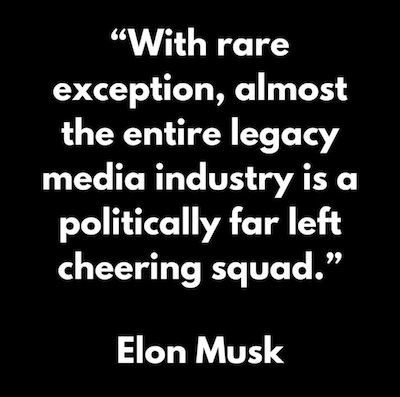


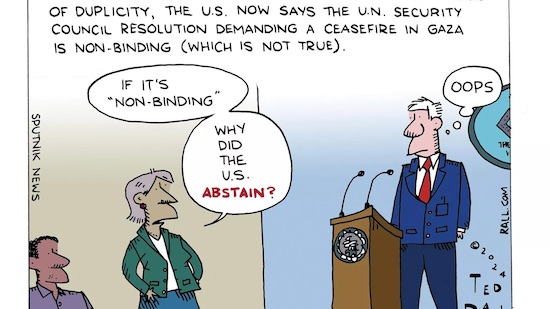




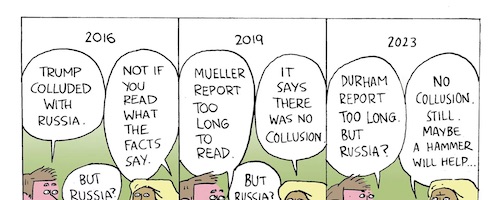
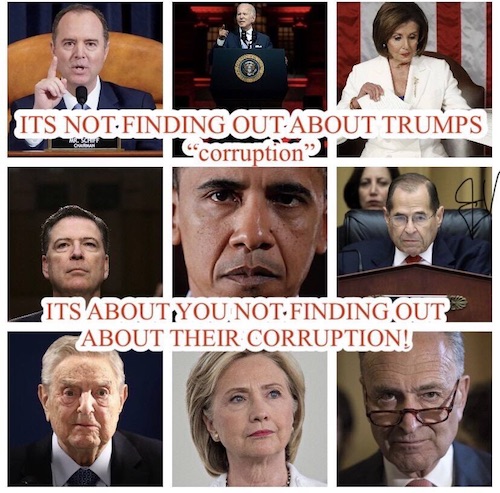
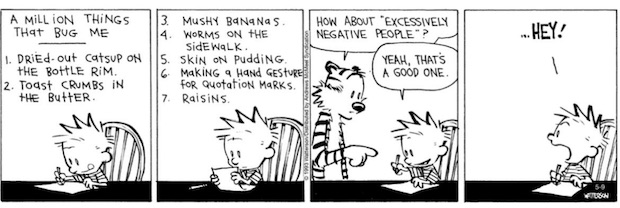

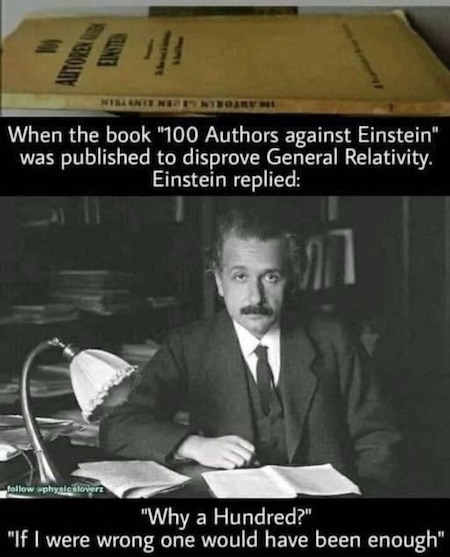



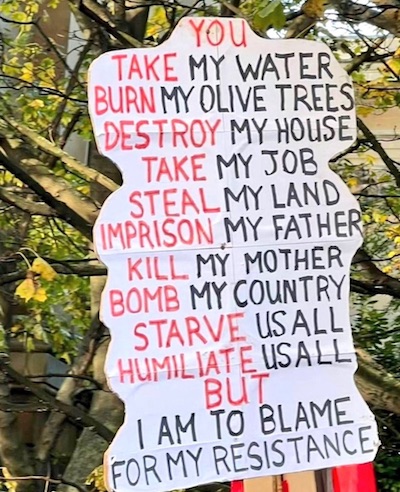




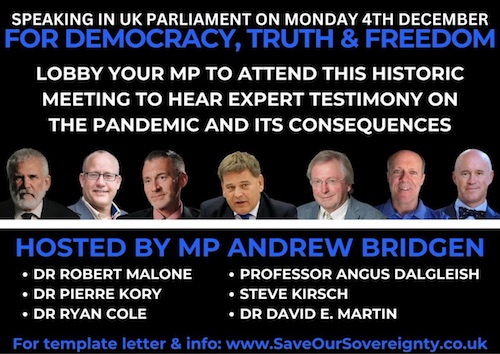








 NEWSFLASH: Russians are forced to get creative with the use of Ukrainian washing machines because of the large supply surplus. pic.twitter.com/wt6rsDuBdz
NEWSFLASH: Russians are forced to get creative with the use of Ukrainian washing machines because of the large supply surplus. pic.twitter.com/wt6rsDuBdz


